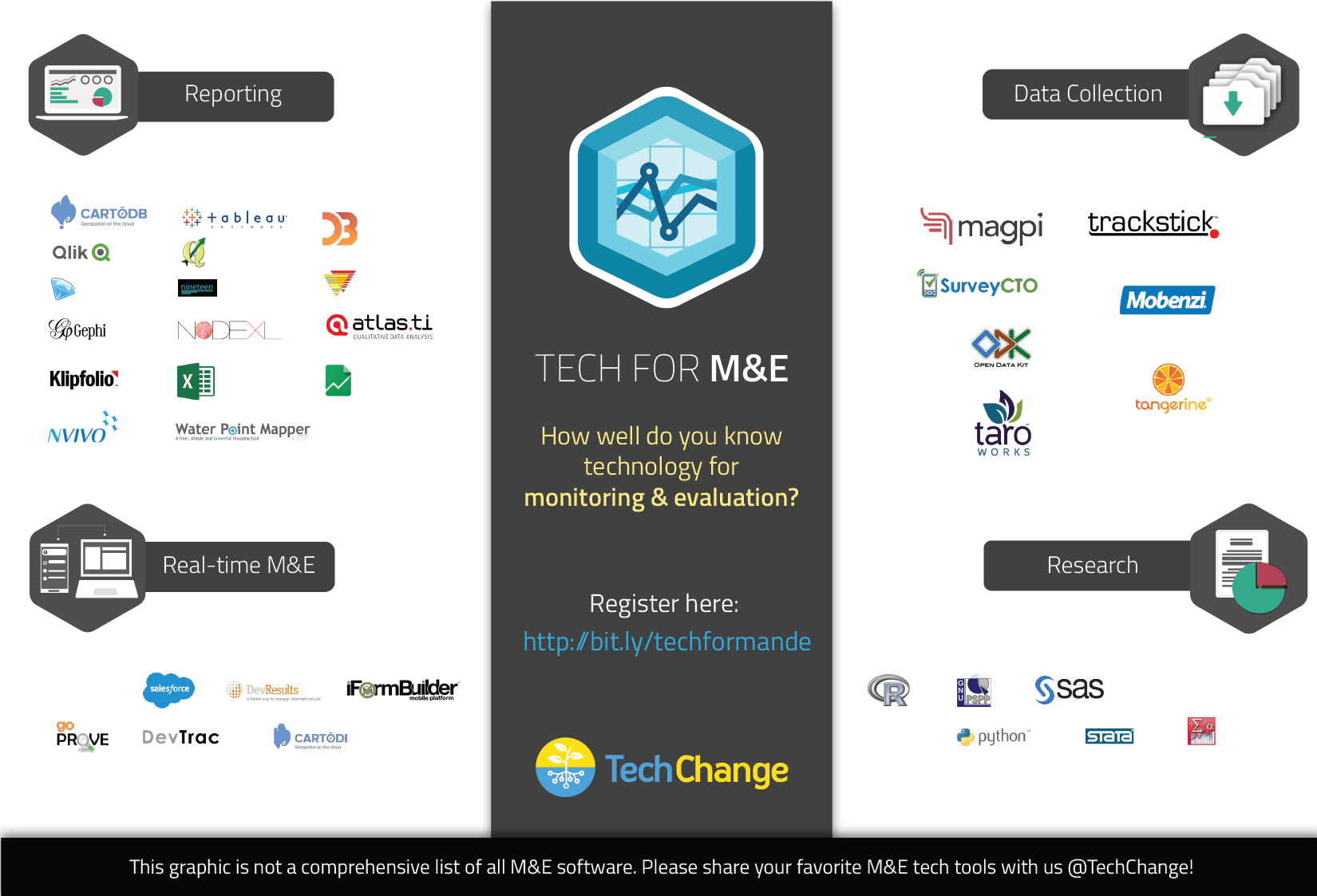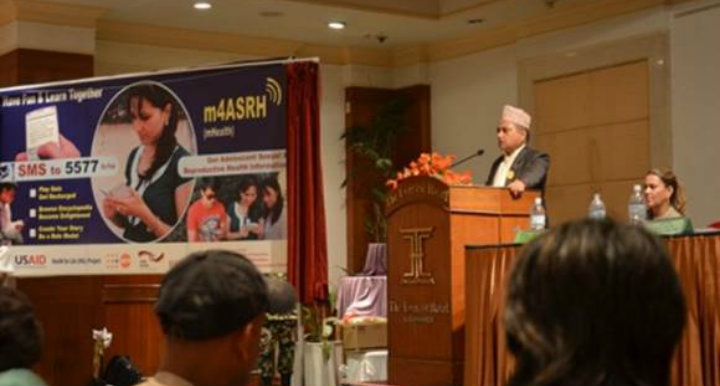At TechChange, we’re always looking for ways to make online learning more interactive, engaging, and relevant for busy, global professionals interested in technology and social change. One way we do this is by bringing together our online TechChange community offline with hybrid learning. Specifically, we try to overlap the schedule of some of our online courses with industry events such as the recent M&E Tech Conference and annual mHealth Summit. We also arrange in-person meet-ups in various cities across the world including happy hours in Washington, DC and other meet-ups including most recently in Lusaka, Zambia.
Last month, we launched our very first round of TC111: Technology for Monitoring & Evaluation with a class of over 100 participants. As one of the top guest experts of the online course, Christopher Robert, who is CEO of Dobility Inc. and a Harvard adjunct lecturer, joined us in the first week of the course while he was traveling in Zambia. To take full advantage of the course, some of our participants based in Zambia asked him if he would be willing to meet with them in Lusaka. So, three of these M&E tech course participants (Ladislas, William, and Mine) met Christopher and his colleagues on the same day to continue the technology for M&E discussions from the online course in-person.
Here’s what happened at the TechChange Tech for M&E meet-up in Lusaka:
Reuniting alumni from different communities
It turned out that Ladislas, William, and Mine had already known each other as alumni of the Global Health Corps (GHC) fellowship. According to Mine Metitiri, a Senior Research Associate at the Zambia Ministry of Health, “A number of Global Health Corps fellows are taking the TechChange Tech for M&E online class and we recommended Chris to be a speaker at our annual training at Yale. Hopefully it works out because he had a lot of great things to say that are relevant to our fields of work.“
Strengthening online connections and learning offline
TechChange alumni such as William Ngosa who works at the Ministry of Health in Zambia appreciated the chance to reunite with his GHC colleagues and to meet Christopher and his team members, Faizan and Meletis. “It was a privilege to meet one of the speakers in the online course to provide a meaningful and enriching learning experience,” said William.
Christopher Robert and his team really enjoyed meeting the Zambia-based course participants as well. “It was lucky that we had the chance to meet!” said Christopher. “These Tech for M&E course participants are doing some wonderful things with ICT for social good there in Zambia. It’s always inspiring to meet people doing good work!”
Sharing good news of a job offer for M&E consulting
One of the participants, Ladislas Hibusu, received a M&E consultant job offer after interviewing with Jhpiego while taking the M&E online course.
“At this M&E meetup in Lusaka, I mentioned that during the M&E course, I interviewed for a position at Jhpiego. I am happy to announce that I have been offered an M&E Consultant role and thanks to the valuable insights to this course, as I was able to apply the knowledge I learned in the course. Although I have had limited experience in applying much of my M&E theoretical work in the field, I am happy to say this Tech for M&E online course is addressing most of challenges that I anticipate in my new role.” – Ladislas Hibusu
Everyone congratulated Ladislas and Christopher Robert joined us for another live event the following week wanting to continue the discussions with other participants in our course.
Several of TechChange’s online courses are designed to facilitate interactions like the one in Lusaka. Participants from all over the world are able to connect with like-minded professionals in the international development sector and continue discussions on specific topics. Watching live and recorded videos, completing different activities, and participating in ongoing discussions on an online forum combined with offline, in-person learning is really what enriches e-learning.
Interested in technology for M&E and want to connect with other M&E practitioners across the world? Register now to lock in early bird rates for our next round of our Technology for Monitoring & Evaluation online course which runs January 29 – February 20, 2015.


